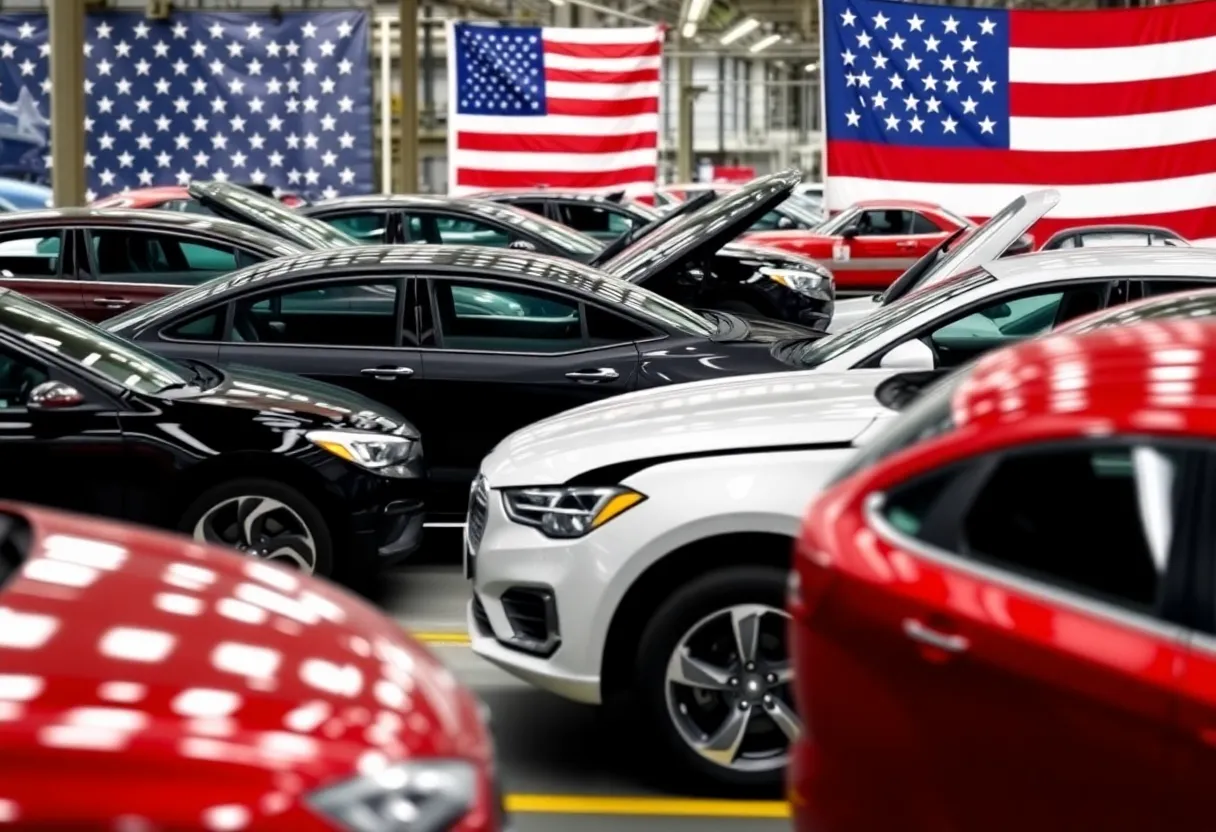

The impact of new car import tariffs on the U.S. auto industry.
U.S. President Donald Trump has announced a 25% tariff on all car imports starting April 2. This action, targeting both vehicles and auto parts, aims to bolster the U.S. auto industry but raises concerns of higher consumer prices and international trade tensions. While the tariffs exclude auto parts from Canada and Mexico initially, experts predict significant price hikes on vehicles. Industry leaders and foreign partners have reacted negatively, highlighting the potential for disruption in supply chains and economic instability.
In a bold move that has everyone talking, US President Donald Trump recently declared a 25% tariff on all car imports, set to kick in on April 2. This significant step is more than just a new tax; it’s part of Trump’s broader strategy to reshape the global trade landscape and is likely to ramp up tensions between the US and its trading partners.
The tariffs aren’t just targeting finished vehicles. They will also apply to auto parts shipped in from overseas. However, auto parts coming from Canada and Mexico will initially be exempt while a new duty assessment system is put in place. This means that there is a bit of a grace period for our neighbors up north and the country to the south.
Trump is banking on these tariffs to spur “tremendous growth” for the US car industry, claiming it will create jobs and encourage more investment in domestic manufacturing. Sounds great, right? But analysts are raising eyebrows, suggesting these tariffs might lead to higher prices at the dealership, potential temporary shutdowns for car production in the US, and a strain on relationships with trading partners.
Last year alone, the US imported roughly 8 million cars, valued at a whopping $240 billion. Major suppliers included Mexico, South Korea, Japan, Canada, and Germany. With the tariffs taking effect, experts predict that the cost of cars could jump by $4,000 to $10,000, depending on how much of each vehicle is made with parts from those exempt countries.
Outside the US, the reaction has been swift. Canadian leaders have labeled the tariffs a “direct attack” on their automotive sector, while European officials are gearing up to assess their response. The European Commission underscored that these measures could have detrimental effects on consumers and businesses in both regions.
Meanwhile, Japan is also weighing its options as it strategizes its response to the new tariffs. With worry lingering in the air, trading allies such as the UK are expressing concern over how their exporters will meet these new challenges.
The heart of the matter? This isn’t just about cars. These tariffs are part of Trump’s ongoing mission to boost American manufacturing. As he looks to reshape trade policies, it’s important to remember that the US International Trade Commission has warned that such tariffs may reduce imports by nearly 75%, but they will also elevate vehicle prices by about 5%.
These tariffs seem to be a revival of actions considered during Trump’s previous term. They continue to illustrate his penchant for using tariffs as a political tool aimed at protecting American industries. Amidst all this, auto industry experts are voicing their concerns, arguing that the new tariffs introduce chaos and uncertainty. Their fears center on potential disruptions to supply chains and a likely downturn in the overall economic climate.
As April 2 approaches, the conversation about these tariffs and their implications is only going to heat up. It’s clear that this move could set the stage for a significant reshuffle in the auto industry and potentially beyond. Keep your eyes peeled; we might be in for quite the ride!
News Summary Columbia University welcomes Claire Shipman as its new acting president amid Congressional hearings…
News Summary The detention of an international graduate student from the University of Minnesota by…
News Summary The U.S. Institute of Peace (USIP) faces significant upheaval as the Trump administration…
News Summary On March 29, 2025, widespread protests broke out across the U.S. and parts…
News Summary A federal judge has reinstated grants for four fair housing organizations, including one…
News Summary A recent undercover investigation by SeaD Consulting has revealed that 58% of restaurants…